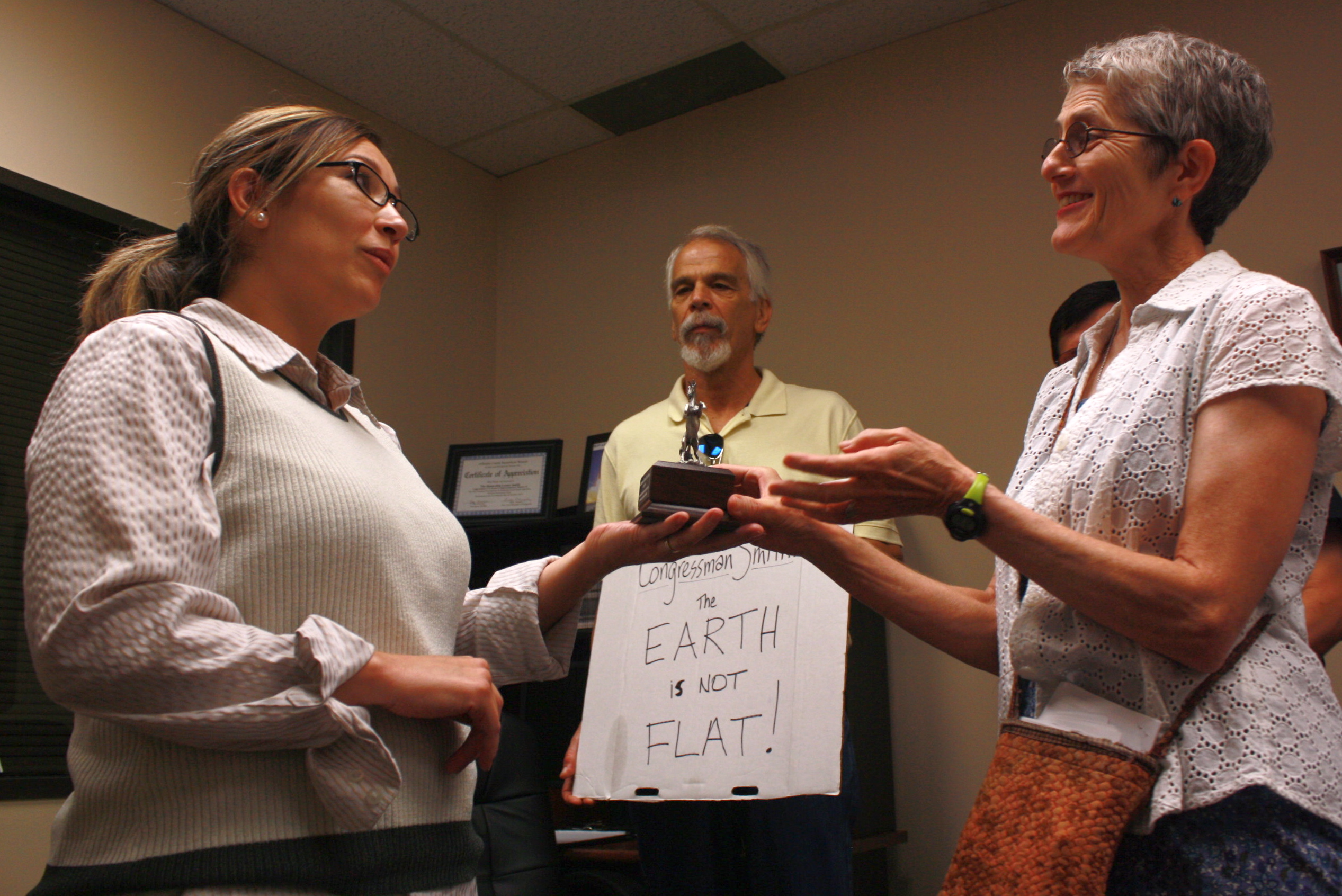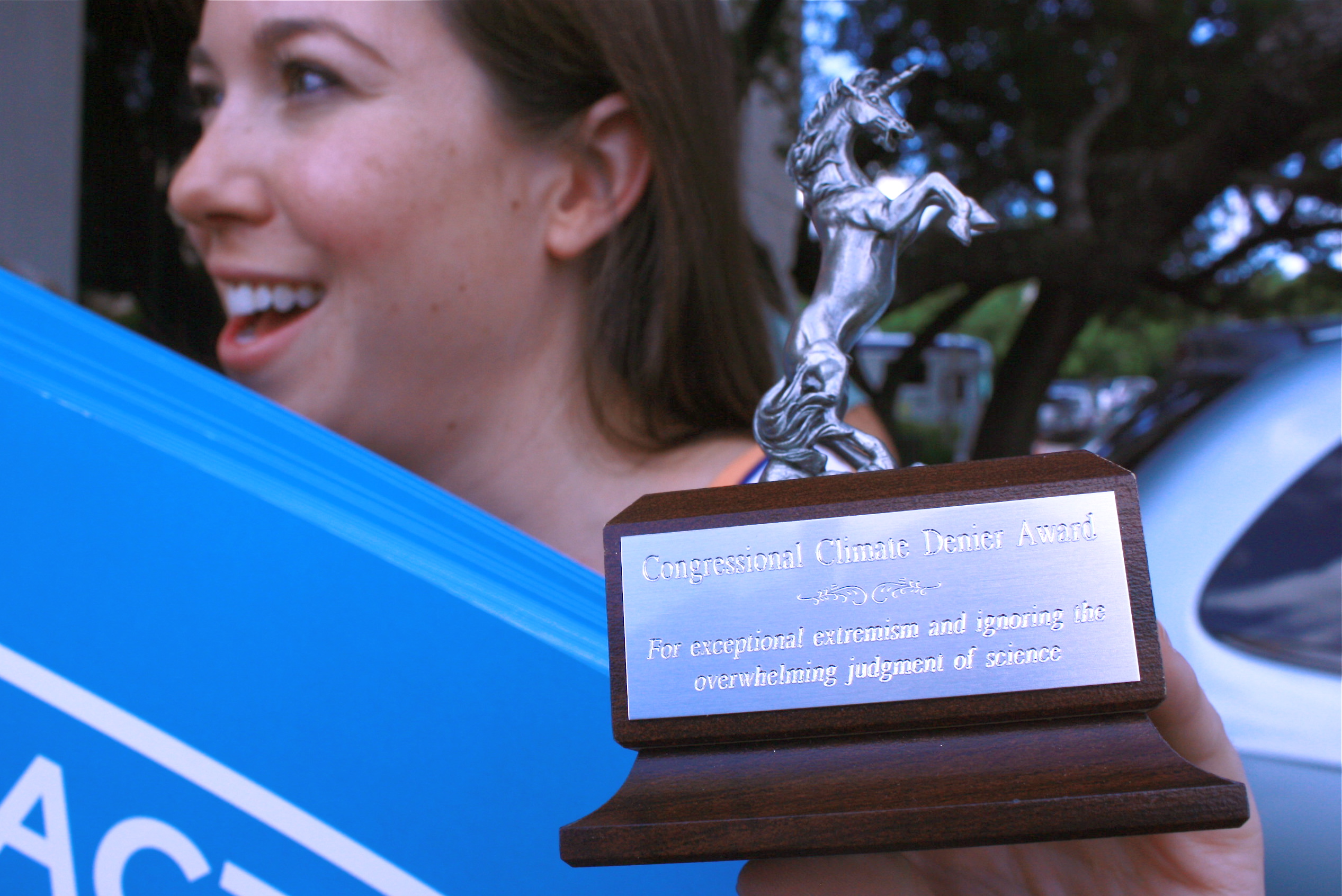
When Rachel Carson’s Silent Spring was published in 1962, it was clear to anyone who looked closely that the widespread and indiscriminate spraying of pesticides like DDT was doing more than cutting down targeted species like the gypsy moth and boll weevil. Beneficial insects, livestock, fish, birds, and people — the entire food web — were being subjected to wanton chemical poisoning.

When the chemical industry titans weren’t threatening lawsuits or taking personal digs at the reclusive biologist and writer for her radical notions about controlling pests by using chemicals more judiciously or even by working with natural systems instead, they were insisting her prescription would usher in certain insect domination.
“If man were to follow the teachings of Miss Carson,” a chemical industry spokesperson said at the time, “we would return to the Dark Ages, and the insects and diseases and vermin would once again inherit the earth.”
A federal review of the science supporting Silent Spring won out, however, and reforms — including a ban on DDT — followed. Life went on. A better life, in fact. Rachel Carson’s world meant we got to enjoy a life with bald eagles, just one of the species believed to have been saved by the visionary work and the reforms it ushered in.
Other changes have been slower in coming.
Tobacco, for example, was known to be hazardous in the early 1900s and linked to cancer in a 1964 U.S. Surgeon General’s report. We all know how that fight went.
Vinyl chloride production was linked to liver damage in non-human animals in 1930 and cancer and bone disease in humans in the 1960s. Like Big Tobacco, the manufacturers decided to fight regulation.
“From the very first reports that vinyl chloride could dissolve the finger bones of workers, cause cancer in animals and deform babies, industry had a simple response: more research is needed,” writes epidemiologist Devra Davis in The Secret History of the War on Cancer.
Before production methods would change, study after study had to be performed. Animal studies were challenged by the companies as “not relevant” to humans. Human studies suffered from repeated complaints about statistics and methodology. In the meantime, exposures, and deformations and deaths, continued.
The Occupational Safety and Health Administration wouldn’t drop the exposure limit on vinyl chloride until 1975. Despite the most dire warning of industry that this would spell doom for its business, production, at least in the U.S., has boomed.
While some nations have banned the chemical and the European Union is working on phasing it out, 15 billion pounds of it were produced in the U.S. in 2006, according to the Vinyl Institute.
Unfortunately, the lessons of manufacturers of cigarettes, vinyl chloride, and benzene, among other known cancer causers, have been implemented by those interested in shielding the fossil-fuel industry from regulations intended on stopping the wheels on our increasingly destabilized climate.
As William Souder wrote on the 50th anniversary of Silent Spring:
Substitute climate change for pesticides, and the argument plays out the same now as it did a half-century ago. President Kennedy’s scientific commission would ultimately affirm Carson’s claims about pesticides, but then as now, nobody ever really gives an inch.
Those adamantly fighting to slow, delay, or stop entirely a concerted national climate-change response are following a well-worn script.

I say all this to remind U.S. Representative Lamar Smith ahead of tomorrow’s presentation of his “unicorn award” from Organizing for Action and participating local organizations that history has a right side and a wrong one.

The unicorn award is meant to encourage Smith to stop stalling climate-change action and denying the basic science behind the biggest challenge of our time. But I’d wager by his 7-percent voting record on environmental issues, that Smith is beyond rehabilitation at this stage in the game.
He may have proved that in a recent column in The Washington Post.
When he argues that strict greenhouse-gas regulation will hurt the U.S. economy he is falling into the PVC-producer’s fallacy. In fact, regulation creates jobs — as many as it takes away, according to Business Week, oftentimes far more than that, according to the Economic Policy Institute.
When he specifically laments the potential loss of 40,000 jobs claimed to be related to an expansion of the Keystone XL pipeline, he is ignoring the promise of the rapid deployment of low-carbon energy alternatives. Nearly two million jobs, according to a trio of reports in 2009.
Right side; wrong side.
Smith makes another major gaffe by suggesting that U.S. action on climate change would make inconsequential changes in future temperatures and therefore is not worth the investment. A shift of .08 of a degree does seem small, but considering that our current course is for a seven-degree rise in temperatures this century and all the devastation that entails, a fraction of a degree in the other direction in huge.
But his biggest error comes in his first sentence calling for “discussion” of the issue, this is the stall tactic of Big Tobacco plain and simple. What is needed is action.
“All scientific work is incomplete,” Dr. Harriet Hardy reminded us many years ago. “That does not confer upon us a freedom to ignore the knowledge we already have.”
In other words, if Smith would rather keep running defense for the most polluting industries on the planet while waiting for 100-percent agreement among the scientific community*, he’ll be waiting (and running) a long time.
There are, after all, still flat-earthers among us.
Perhaps that unicorn will come in handy.
—
* Should 97-percent consensus not be enough to start charting aggressive corrective action.
—
Unicorn Awards were presented to 18 members of Congress today across Texas. Similar events were held across the county. Here are a few images from the San Antonio event.






—
For more information on the most-abused myths of climate change, visit Skeptical Science or NASA.









